The Vedas: An Exploration

The Purusha Sukta, A Vedic hymn extols the preeminence of the Purusha who is unanimously identified as Narayana. Purusha Sukta along with other hymns in the Vedas promulgates the pantheistic view of creation. An analysis of the Vedic hymns reveals that Lord Vishnu, is, in reality, the sum and substance of the verses. They clearly establish the supremacy of Vishnu. In fact, he is extolled as the highest God par excellence in the Rig Veda – an adjective applied to none other than Vishnu. A sampling of the verses given below reveals the veracity of this statement.
‘Three of these worlds Vishnu strode; thrice did he plant his foot’; ‘The whole of this universe was gathered in the dust of His footsteps’; ‘Vishnu, the Guardian of all, he whom none can deceive, made three strides and henceforth established the Dharma (an obvious reference to the Trivikrama)’; ‘As the eyes spread out as it was in the sky so do the wise ones see the supreme state of Vishnu’; ‘The ever prayerful and awakened wise realized that the Supreme state of Vishnu.’ Yaska, the master of etymology, explains the literal meaning of the word Vishnu as immanent and the all-pervasive Principle who spreads over all the planes of existence.
Diese Geschichte stammt aus der May 2019-Ausgabe von The Vedanta Kesari.
Starten Sie Ihre 7-tägige kostenlose Testversion von Magzter GOLD, um auf Tausende kuratierte Premium-Storys sowie über 8.000 Zeitschriften und Zeitungen zuzugreifen.
Bereits Abonnent ? Anmelden
Diese Geschichte stammt aus der May 2019-Ausgabe von The Vedanta Kesari.
Starten Sie Ihre 7-tägige kostenlose Testversion von Magzter GOLD, um auf Tausende kuratierte Premium-Storys sowie über 8.000 Zeitschriften und Zeitungen zuzugreifen.
Bereits Abonnent? Anmelden

Panchakroshi Parikrama of Varanasi
At the snow-capped Kailas, the Divine Lord Shiva was seated with Mother Parvati.
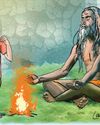
Gadai and the Monks
A fictional narrative based on incidents from the childhood of Sri Ramakrishna.

Chintayo momo maanosho Hori...
Sri Ramakrishna loved songs. There probably was no normal day when he did not sing some songs.
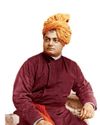
The Vedanta Vaccine
The world is still struggling under the impact of the pandemic due to Covid-19 for the last three years.
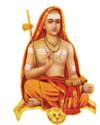
Chandrakirti's Chariot: Self in Madhyamaka Buddhism and Advaita Vedanta
The goal in Advaita Vedanta is the cessation of suffering and the attainment of true fulfillment. Suffering, according to this school, is due to ignorance of the true nature of the self and consequent erroneous identification with the body-mind.

Reminiscences of Sargachhi
Question: यद्यदाचरतत श्रेष्ठसतत्तदरेवरेतरो जनिः। ‘Whatever a superior person does, others do the same thing!’ (Gita 3:21) – What does this statement mean?
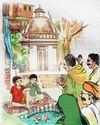
THE AUTUMN FESTIVAL
A fictional narrative based on incidents from the childhood of Sri Ramakrishna.
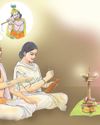
Bards of Guruvayur: Vilwamangalam II
Saints of India
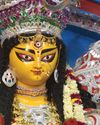
In the Universal Mother’s Divine Playground
Swami Vivekananda never taught the worship of Mother Kali. In a letter to Mary Hale he writes, “Kali worship is not a necessary step in any religion.
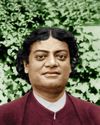
Swami Vivekananda: A Sportsman Par Excellence
In various books and articles, Swami Vivekananda has been called a spiritual leader, a prophet, a patriot, a social reformer, a philosopher, a yogi, a writer, an orator, an educationist, a musician, and so on.